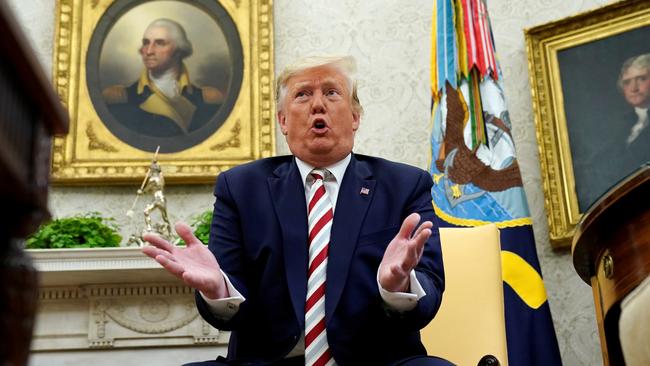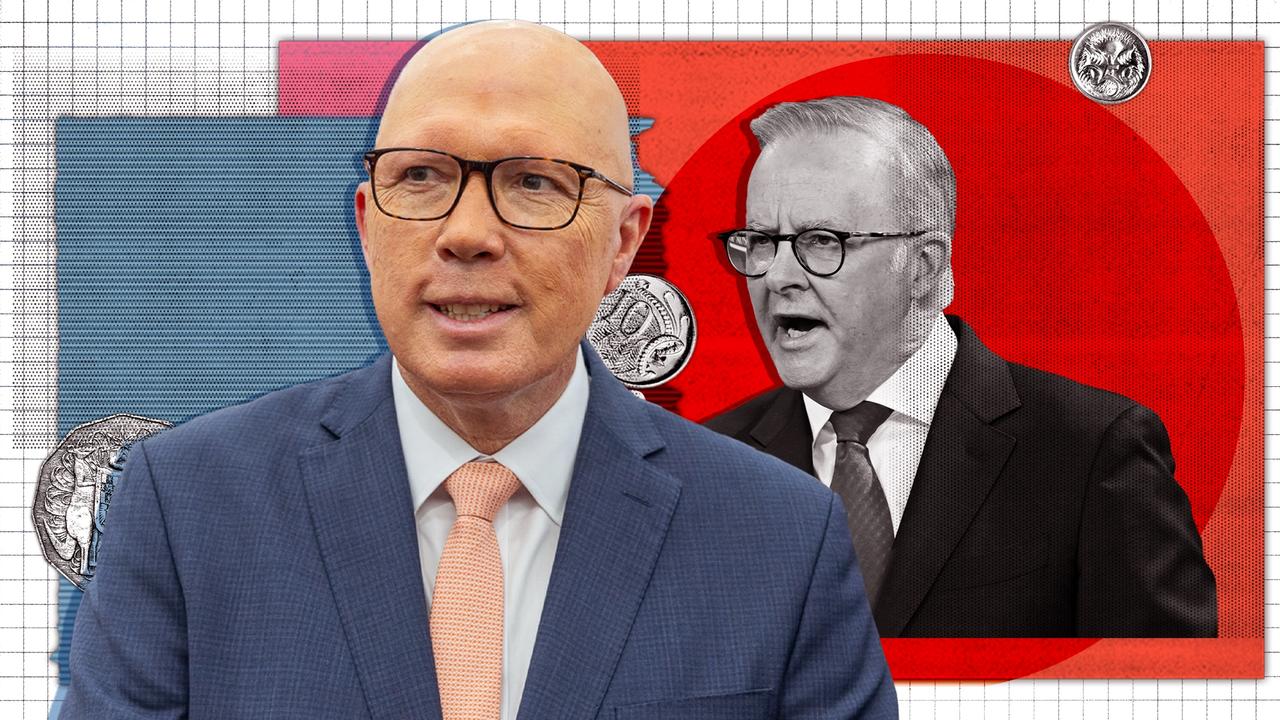
The pattern is almost identical to that taken by the President after the Parkland school shooting early last year when he floated a series of gun control measures only to abandon them under pressure from the National Rifle Association.
Immediately after gunmen killed 31 people in El Paso and Dayton in less than 24 hours early this month, Trump called for stronger background checks for gun buyers, tweeting: “We must have something good, if not GREAT, come out of these two tragic events!”
Yet after talks with NRA chief Wayne LaPierre, Trump appears to have retreated on the issue, saying “people don’t realise we have very strong background checks right now”.
Since then, the President has fallen back into line with the NRA, blaming mass shootings on mental problems rather than the easy access to high-powered assault rifles.
“It is not the gun that pulls the trigger, it is the person holding the gun,” Trump said at the White House yesterday, repeating the lines of an old NRA bumper sticker. “I don’t want people to forget that this is a mental health problem.”
Trump’s retreat on the issue of gun control seems to be less based on conviction than on a political calculation that tougher gun control will risk his standing among pro-gun, white, working-class males who backed him in the crucial Midwest states in 2016.
They are votes he needs to win to secure a second term in the White House.
“A lot of the people who put me where I am are strong believers in the second amendment,” Trump said yesterday.
His refusal to support even minor measures to toughen gun laws is mirrored by the Republican-controlled Senate, which has been hostile to any gun reform bills and also shows no sign of softening its position in the wake of the El Paso and Dayton massacres.
While Trump and the Senate are holding firm on the issue, there are ample signs both are increasingly out of step with American public opinion, which is slowly shifting in the wake of a stream of mass killings in recent years, from Orlando to Las Vegas to Parkland and El Paso.
A Wall Street Journal/NBC poll this week found 89 per cent support for expanding background checks for gun buyers, with 75 per cent “strongly” supporting such measures.
The survey also found 76 per cent supported so-called “red flag” legislation aimed at temporarily stopping someone deemed dangerous from buying a gun, with 57 per cent of these saying they “strongly supported” such laws.
And a Fox News poll last week found two-thirds of Americans now support reviving the ban on assault weapons that was in place between 1994 and 2004.
A grassroots, student-led, anti-gun movement that began with the survivors of the Parkland school shooting has led to large pro-gun-control marches across the nation, placing the issue more squarely in the public eye.
This mood has emboldened many Democrats to embrace tougher gun laws, despite the certainty they will be targeted by the NRA at the next election.
Some, such as presidential candidate Beto O’Rourke, even say they are proud of receiving the once-dreaded “F” rating from the NRA, which was once the political kiss of death for the political prospect of Democrat candidates in close-run districts.
In February, the Democrat-controlled House of Representatives passed two sweeping bills requiring background checks on all gun sales, including at gun shows, and more time for gun sellers to receive background checks on potential buyers.
The Republican Senate has refused to consider the bills.
Despite the string of mass shootings in recent years, the only federal gun control reform has been the banning of so-called bump stocks, which allow shooters to fire more bullets more quickly, following their use in the Las Vegas massacre in which 58 people died.
Yet even without a bump stock, the shooter in the Dayton massacre managed to spray 41 rounds in 32 seconds, killing nine people.
A ban on assault weapons and high-capacity magazines, and more stringent background checks, are the most obvious immediate steps the US could make to help address the blight of mass shootings.
Trump claimed yesterday that he was still involved with “very meaningful discussions” with the Democrats on possible gun-control measures.
In the same breath, he claimed that Democrats would “give up” the right to bear arms under the second amendment.
The bottom line is that the US has endured another two massacres with no real prospect of any change to federal gun laws.
It all but guarantees that this uniquely American tragedy of mass shootings will continue unabated.
Cameron Stewart is also
US contributor for Sky News Australia




Donald Trump is walking away from new measures to curb mass shootings in the US, despite promising to take action in the immediate aftermath of the El Paso and Dayton massacres.